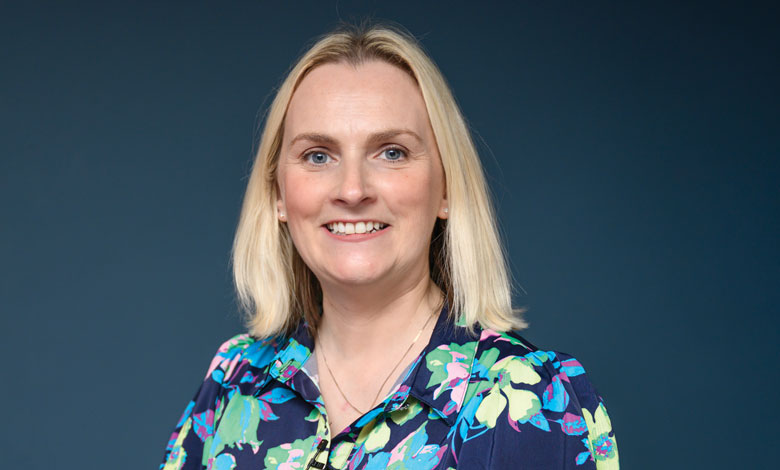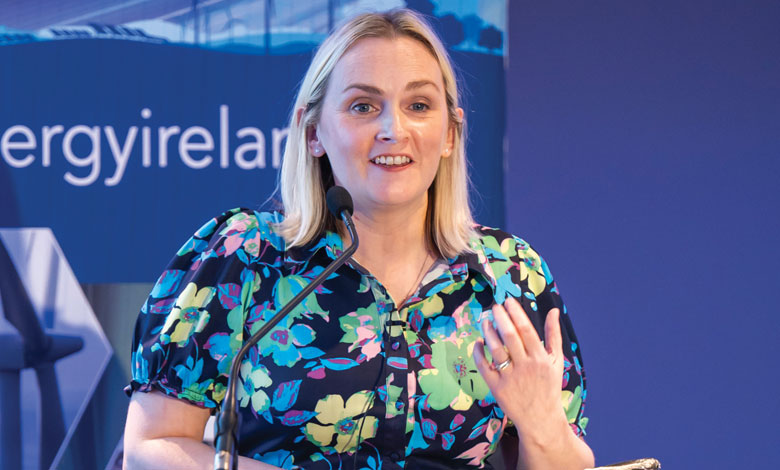
The Grant Aerona R290 Heat Pump: Meeting Ireland’s climate needs
14th October 2025
It is time to electrify Ireland
14th October 2025Delivering a geothermal project

As the race to decarbonise heats up, Sara Lynch, Head of Sustainability at Queen’s University Belfast, outlines the delivery of a successful geothermal heat project to Energy Ireland.
Sara Lynch outlines the difficulties regarding decarbonisation the university has faced, “with multiple activities taking place across campus at any given time, and with 80 per cent of our buildings located within a conservation area, decarbonising our beautiful estate is a great challenge, but it also offers many opportunities”.
As an institution leading the way in sustainability, organisations and individuals look to the university for guidance and best practice in delivering real impact across a range of global challenges, as Lynch elaborates, “we house much expertise that will find the solutions to sustainability problems, and educate the designers and engineers of the future, who will deliver those solutions”. Queen’s University Belfast has committed to achieving net zero by 2040, Lynch explains that “the hard work that goes into embedding sustainability into every aspect of university life reflects the dedication and collaboration of the entire university community”.
Progress on decarbonisation
Progress on reaching net zero began in 2010 after the university launched a carbon management plan, followed by large investments in combined heat and power. Further measures have been introduced since then such as reducing business travel, increased active travel in commuting, alongside empowering students with opportunities to learn about decarbonisation and deliver their own green initiatives across the campus.
“Since our project, significant government feasibility studies have now been undertaken to understand further how we can utilise these capabilities.”
In August 2024, construction of the 16 storey Weavers’ Hall project commenced. Consisting of 459 student bedrooms, “this landmark development will be the first Passivhaus purpose-built student accommodation in Belfast, and the largest Passivhaus-certified building on the island of Ireland”, describes Lynch. To reduce its carbon footprint, the University must look beyond energy usage, as Lynch states, “just 20 per cent of our carbon footprint comes from electricity and heat, with the remaining 80 per cent coming from what we are buying, business travel, student and staff commuting, and building construction”.
“We need to decarbonise in a way that connects with the curriculum, encourages sustainable travel, and incorporates sustainable procurement alongside avoiding heat waste by using our space more effectively, repurposing existing stock, and retrofit of our building stock.”
Numerous projects are due to commence such as a Passive House EnerPHit scheme, Photovoltaic programme, heat pump installation on campus new builds, and a hybrid heat pump project designed to understand how the retrofitting process can be simplified.
Lynch expands on this, saying, “instead of completing a deep retrofit of a building, we are taking one of our teaching buildings and inserting a gas boiler and air source heat pump, without other upgrades to test the effectiveness of this combined intervention to decarbonise our heat.
“This project is a pathfinder project to help us understand how we might then apply this on other projects and inform how we can achieve carbon reductions without extensive retrofit.”
Queen’s Business School
In September 2023, the state-of-the-art Queen’s Business School Student Hub welcomed its first students. The £26 million project was designed to be sympathetic to the surrounding greenery, including the Grade I listed Riddel Hall, and to be “as sustainable as possible”.
Recognising the challenges of sustainability, and the unsuitability of gas boilers, Lynch says, “as the design process commenced in 2018, net zero legislation was making its way through parliament, and the climate strikes were in full swing”.
“We made the conscious decision to move away from fossil fuels, integrate renewables, and enhance biodiversity as much as possible.”
While the University had previously undertaken small-scale geothermal projects, heating the Business School sustainably was a greater challenge. Geothermal energy, harnessing the Earth’s inner heat for energy and heating/cooling purposes, is rarely employed in Northern Ireland. Lynch explains the rationale behind the choice of geothermal: “A closed-loop, shallow geothermal system was chosen because there is a lot of Sherwood Sandstone in the northeast of Northern Ireland, left largely untapped. Since our project, significant government feasibility studies have now been undertaken to understand further how we can utilise these capabilities across Northern Ireland.”
Geothermal energy
“To enable the use of this energy, we navigated a careful procedure,” Lynch explains. “After ground excavation to basement level, we placed 40 vertical pipes into the geothermal field, a glycol solution (a mixture of water and glycol) was transported across a 10-kilometre pipework.
“These pipes pick up the heat as it goes across the network and brings it back through the manifold into the building, where the ground source heat pumps make it usable heat for the building.”
Explaining the benefits of the system, Lynch highlights reductions in carbon footprint, “compared to gas boilers, we are saving around 80 tonnes of CO2 per annum, and we have also had positive feedback from building users”.
However, there are some downsides to the system. “You cannot push a boost button if someone is cold, if a window is left open, closing it will not lead to the room quickly heating up”.
“It requires a change in behaviour and people must be informed on the systems functionality. But we have had positive engagement with the [Business School] managers, and there have been few problems.
“Staff and students have embraced the new system. While there were initial concerns as there is with having to adapt to new ways of working, the transition has been smooth.”
“Luckily, the controls are very similar to previous systems. The complicated part, building the system, is finished. The maintenance team have found the heat pump much easier to maintain than other systems across the University,” she adds.
There are also educational opportunities for students resulting from the project, with Lynch saying, “it offers a huge opportunity in giving our students a hands-on experience of understanding how a geothermal project works”. It has also “helped inform conversations on geothermal across the public sector”.
“These organisations are exploring how they can apply this technology, at Queen’s, we have clearly demonstrated its potential.”
Concluding, Lynch outlines her passion for the future of geothermal energy: “We have a large movement within Northern Ireland that is energising the geothermal sector and driving real momentum. Queen’s is delighted to be part of that journey and to continue championing geothermal energy as a key solution for a sustainable future.”

